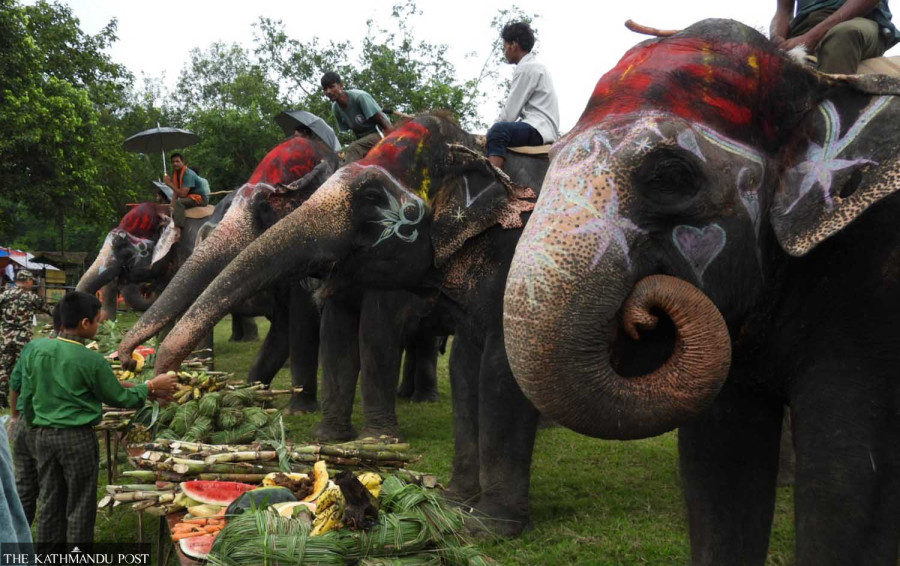National
With elephant safaris declining, Sauraha operators turn to ‘bush walks’
Changing tourist preferences and animal welfare concerns push Chitwan’s entrepreneurs to explore new elephant-friendly activities.
Ramesh Kumar Paudel
For decades, elephant safaris were a signature attraction in Chitwan National Park, drawing hundreds of thousands of visitors annually. But today, the appeal of riding elephants is fading, prompting tourism operators in Sauraha to search for alternatives such as the “elephant bush walk.”
Once, as many as 90 elephants would line up daily for safaris in Sauraha alone. Now, the number has halved, with only around 45 still involved in the business. According to elephant owners, the decline began after the Covid-19 pandemic, when many found it difficult to maintain the high costs of feeding and caring for elephants. The expenses can reach Rs150,000 per month per animal, according to Dipendra Khatiwada, chairman of United Elephant Safari Cooperative. Some owners even returned elephants to India or sold them off.
The downturn has also been fuelled by growing international criticism of elephant rides. In 2014, a Munich-based German organisation, Pro-Wildlife, called on tour operators to stop promoting elephant safaris, citing concerns about improper treatment. Several European operators subsequently dropped the activity from their packages, directly impacting Sauraha’s tourist flow.
“Many of our European guests started saying that elephants suffer during safaris. They no longer wanted to ride them,” said Dhruba Giri, a long-time operator and chair of the Restaurant and Bar Association, Sauraha.
Giri, who owns four elephants, has since introduced the “bush walk,” where visitors walk alongside elephants through grasslands and riverbanks. The animals have breakfast at the same time the tourists do.
“The package costs more than a safari, but guests are happier knowing it is more elephant-friendly,” he said.
The United Elephant Safari Cooperative, which once had over 60 elephants, now manages only 30. Its chairperson, Dipendra Khatiwada, acknowledged that the model of elephant tourism needs to diversify. “We have also started offering elephant walks. Tourists prefer experiences where they can interact with elephants without riding them,” he said.
Conservationists agree. “If people can enjoy watching rhinos, they can also appreciate elephants without riding them,” said Ganesh Pant, chief conservation officer at Chitwan National Park, the country’s first national park. “The model of elephant tourism has to evolve.”
Veteran tourism entrepreneur and conservationist Ram Kumar Aryal, who has kept elephants for nearly four decades, echoed the view. “Some foreign visitors, especially Europeans, oppose elephant rides altogether. We need to explore alternatives, or tourism here will suffer,” he said.
For now, bush walks and similar activities are gaining popularity. But as concerns about animal welfare grow and the costs of maintaining elephants remain high, Chitwan’s tourism industry faces a crucial question–what will happen to Sauraha’s identity if elephants are no longer part of the safari experience?




 15.12°C Kathmandu
15.12°C Kathmandu1.jpg)















